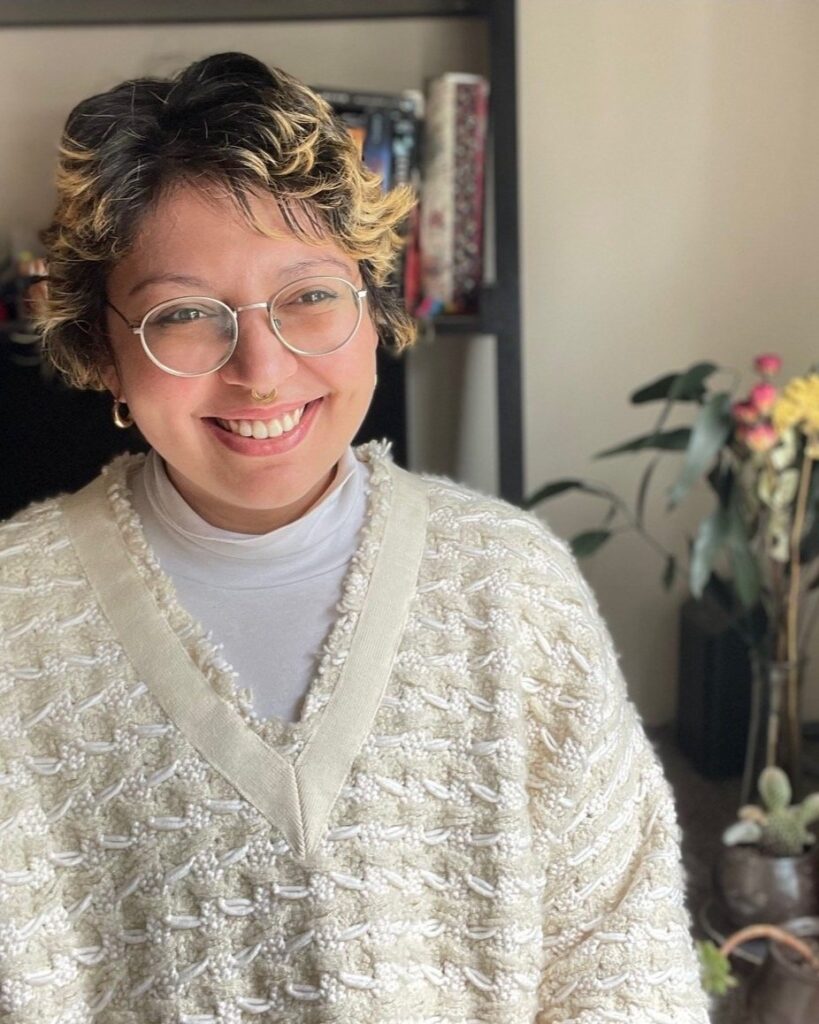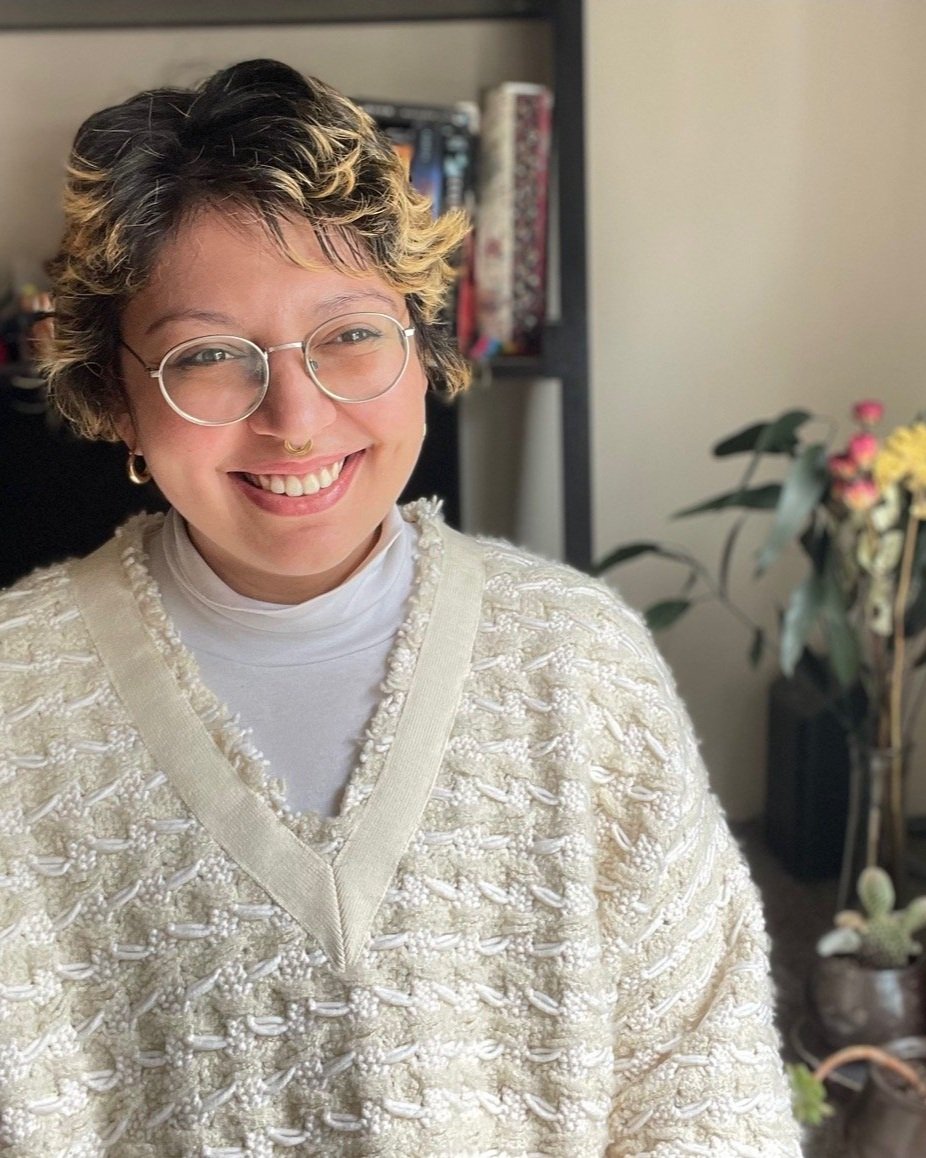There’s one question I’ve gotten a lot since my second book, 24 Hours in Charlottesville: An Oral History of the Stand Against White Supremacy, came out: what is oral history anyway?
To help me answer this question, I spoke with oral historian Noor Alzamami, who I hired to worked on this book with me! Here’s a transcript of our conversation, lightly edited for length and clarity.

An Interview with Noor Alzamami
Nora: Hi! So would you mind just introducing yourself?
Noor: Yeah, so my name is Noor Alzamami. I use they/them pronouns, and I live in Seattle, Washington right now and work for the National Public Housing Museum located in Chicago.
Nora: So cool! Okay, so I was thinking about how we came across each other and how our paths intersected. We originally got hooked up through Columbia’s oral history department. And would you tell me a little bit about what you studied there and what that experience was like?
Noor: Yeah, so I actually had a really interesting experience with OHMA, which is the Oral History Masters of Arts. I actually got my degree when the pandemic happened, so the first half of my experience was in person and then the second half was not in person. So that definitely gave me a unique sort of introduction to oral history, like, how do we explore and continue to produce oral histories when we can’t physically be in the same space and practice oral history in the traditional ways?
So that was definitely an interesting part of my experience, and I was able to really explore that, which brought up a lot of the things that we grapple with in oral history of what does it look like to share space with a person? What does it look like to create a space with a person where they feel comfortable and open and can feel your energy and learn to trust you? How do you do those things regardless of what space you are taking physically, whether that’s online or in person.
And so a lot of the program is exploring those sort of abstract, bigger questions of how do we create a space where people can share their truth and their perspective in a way that isn’t being influenced necessarily by a greater narrative or a predetermined purpose. Letting people share their truth, share their perspective in a way that can be as close to whole as we can get. But of course, we can’t get to that perfection as someone that’s sharing space and conducting an oral history, there is a little bit of that influence. So it’s learning how to navigate your presence in that space and honoring the people you listen to.
Nora: It’s so funny you bring that up about doing oral history in a pandemic era, because I wrote the book in a pandemic era also, and was in New York, not Charlottesville anymore. And so many of these interviews were done over Zoom and over the phone and over Google Meet, and that’s my only experience with oral history. So I don’t really know anything different. But what were some of the things that you had to do differently because you were on Zoom?
Noor: That’s a really good question because some of the things that were different were just like, if we’re doing an in-person oral history, I’m using shotgun microphones that can hear through walls, and you have to be a lot more specific about the kind of noise that you pick up. But with Zoom, it’s just a basic microphone and you can just ask them to go into their room so it changes. So there’s kind of those literal logistic differences.
But then it does go back to that idea of how do you share space with someone when you’re not literally in real life sharing space. And so for me, I think that means either using my body language a lot more and on camera to express things so that they can still feel my energy or to be more verbally expressive.
Maybe I won’t interrupt as much, in person, with the affirmations of mm-hmm or yes because they can feel that energy or they can kind of sense through my body language that I’m engaged. But when it’s Zoom and it’s the hundredth Zoom meeting you’ve had that day, you have to find new ways to connect with people.
Nora: One thing I noticed was how different your interviews were from the ones I conducted, because we were bringing our real selves to the interview. In these hours-long conversations about the most traumatic moment of a person’s life, they want to have a conversation with you and know who they’re talking to.
Noor: Right. And as a person that also has trauma, how to bring up the aspect of [my own] trauma in the interview also. And I think one of the reasons why I did speak more to my vulnerabilities and more to my experiences is because I wanted to let them know that I was right there with them, that I was asking them for vulnerability, and they were also receiving vulnerability from me, especially because we didn’t have that in-person connection.
I’m an individual that lives with complex PTSD, so I’m pretty familiar with when folks get triggered or activated. I feel comfortable, because of my own experiences, in navigating and being able to step in and ask, Do you need a second? Let’s do some square breaths, things like that.
So again, I think it can be very empowering to know that your interviewer can understand to an extent where they’re not going to necessarily jump to conclusions. But it’s also a careful balance because you don’t want to take away and you don’t want to focus in on you. You don’t want to take away the moment of the purpose that we’re sharing space is to honor and listen to this person.
Nora: Something that I was surprised by was the number of people who— after breaking down in interviews— would say something along the lines of, Wow, it actually feels so good to talk about this. I’ve never been to therapy. This is my therapy. Ha ha ha. And that always brought me up short because I am not a licensed therapist at all, and I don’t have the skills to help someone through that.
Noor: Right
Nora: But I think there also is an enormous amount of strength in telling stories. And I think I was worried in the beginning that this would feel like taking advantage of people or forcing or encouraging people to relive their trauma in a way that would hurt them. But a lot of people have shared, even way after the fact, that it really helped them to tell the story from beginning to end.
Noor: Yeah. I think a lot of times, other people in your life aren’t going to be the ones to necessarily want to talk about it. They don’t know how to approach it. I found that, personally, people don’t really want to ask you about the hard times because they know that it can be activating a trigger for you, and they don’t know how to hold that space and feel comfortable being uncomfortable.
So it makes sense to me for there to be that relief of I’m just glad I was finally able to say it, to verbalize it, to get it outside of just my head. And people do that in a lot of ways. I’m not saying that this was, by any means, the only way that folks have been able to do that, but there is something to be said about being able to verbalize it. Yeah.
Nora: So, what did you take away from working on this project?
Noor: Oh, honestly, so much, and in so many different ways. Being able to share space with all of the folks I was able to interview and listen to was amazing. Multiple of them after the interview, would be like, Oh, if you’re ever in Virginia, let’s get some fried chicken or something like that. It did lead to some sort of genuine connection. And that was really, I mean, what a gift for me.
And that really does stay with me to this day. I think about them when I do my oral history work now, and I think about the ways that I can continue to honor them with what they’ve taught me.
And of course it was also a joy to get to work with you and learn from your perspective of things as well, the journalistic side and you conducting this book and organizing everything. I also learned so much from that as well.
Nora: Thank you. I have loved working with you, and I think you brought such an important perspective and important skillset to the project. I don’t know if I ever really told you this, but I interviewed a couple different people as oral historians to work on the project, and I was so impressed with the way that you thought about the responsibility of oral history and you were concerned about the process and not just the outcome.
And I think that was one of the reasons that I really felt like I trusted you and because, I mean, I have never turned over such an inherent part of a project to someone before. I’ve had research assistants, but you were like, I mean, I wasn’t in these interviews, you were fully doing this on your own, which just at the beginning was a little bit of a leap of faith for me, and it ended up being the best part of this project, and I am, I’m just so grateful that you worked on it with us.
Noor: Oh my gosh. Thank you so much for saying that. My heart feels very full right now.
Nora: Yeah. You’re incredible.
